Introduction
In an era where efficiency and productivity are paramount, GitHub Copilot emerges as a transformative tool for software developers. By harnessing the power of artificial intelligence, GitHub Copilot seamlessly integrates with development environments to suggest entire lines or blocks of code, significantly streamlining the coding process. A study conducted with Accenture revealed an impressive adoption rate, with a vast majority of developers incorporating Copilot into their daily workflows, resulting in substantial gains in coding speed and accuracy.
The tool's ability to assist developers of all levels, from novices to seasoned professionals, underscores its versatility and potential to revolutionize programming. This article delves into the profound impact of GitHub Copilot on developer productivity, exploring quantitative data, the broader benefits beyond speed, and the challenges that accompany this cutting-edge technology.
The Impact of GitHub Copilot on Developer Productivity
GitHub Copilot has emerged as a groundbreaking tool in integrated programming environments (IDEs) like PyCharm. By utilizing artificial intelligence, it greatly improves the programming experience by recommending complete lines or sections of code as programmers type. A study conducted with Accenture revealed that over 80% of participants successfully adopted GitHub Copilot, with a 96% success rate among initial users. In fact, 67% of participants used Copilot at least five days per week, demonstrating its ease of integration into daily workflows.
In a comparative analysis, development teams utilizing Copilot reported a substantial reduction in programming time, with some tasks being completed up to 30% faster. This acceleration is particularly pronounced in repetitive coding tasks, where Copilot's suggestions minimize the need for manual inputs, allowing programmers to concentrate on more complex problem-solving. 'GitHub CEO Thomas Dohmke noted that such resources keep the necessary information adjacent to the code being written, maintaining the flow and enhancing productivity.'.
Furthermore, the AI-powered suggestions offered by Copilot have been shown to benefit individuals of all skill levels. Junior developers particularly experience considerable benefits, as these resources not only accelerate their coding process but also assist in learning and enhancing code quality. The integration of AI in software creation is creating a unique synergy between human ingenuity and artificial intelligence, paving the way for a new era in programming.
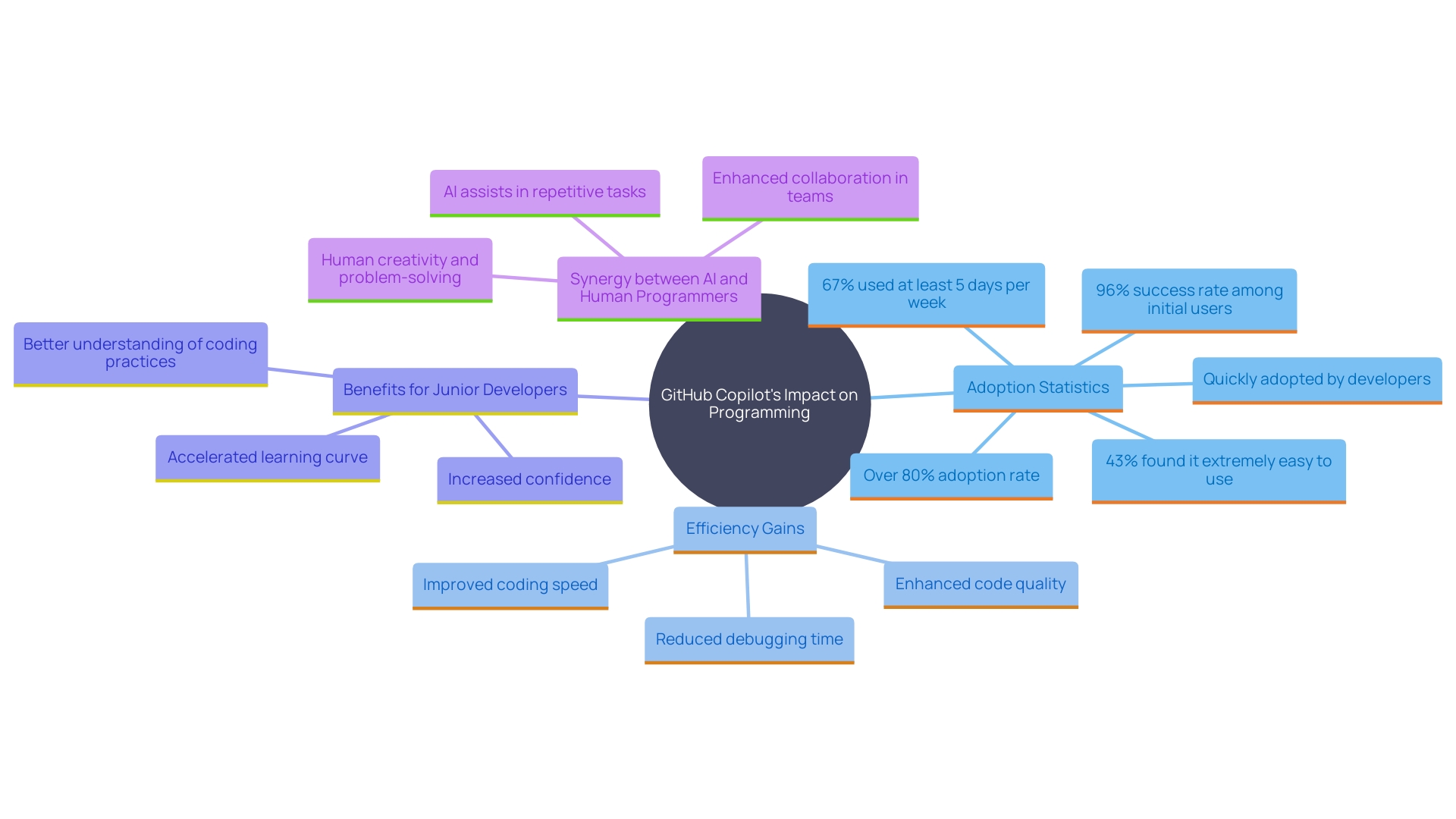
Quantifying Productivity Gains
A study involving multiple software development teams explored the productivity gains brought by autocompletion resources like GitHub Copilot. The metrics analyzed included code completion speed, error rates, and project delivery timelines. The groups employing AI resources finished their assignments roughly 30% quicker than those utilizing conventional techniques, a notable enhancement that corresponds with results from other studies. For instance, a randomized controlled trial with hundreds of teams from a multinational corporation revealed that individuals utilizing AI-enhanced resources, such as natural language code generation and intelligent code completion, experienced a 30% increase in task completion speed. Additionally, the quality of code improved, with fewer bugs reported. This suggests that AI-based coding assistants not only expedite the coding process but also enhance code quality, making them indispensable in modern development workflows. Furthermore, feedback emphasizes that these resources enable developers to concentrate on more creative and intricate tasks, thus enhancing productivity and innovation.
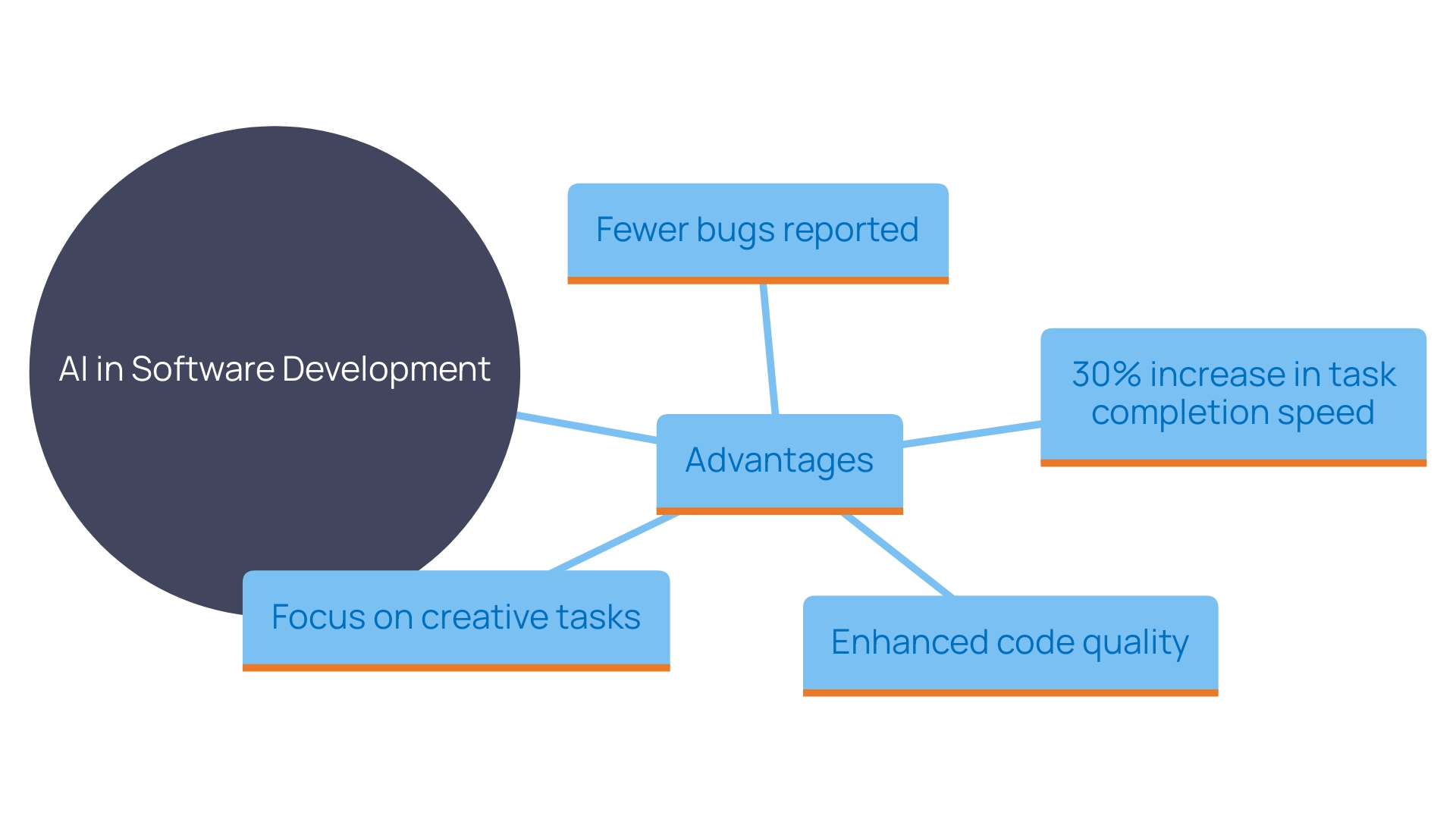
Benefits Beyond Speed
While speed is a critical factor, the advantages of using autocompletion systems extend beyond mere time savings. Developers have reported enhanced creativity and reduced cognitive load, as they can rely on the tool for mundane coding tasks. This shift in focus enables creators to engage in higher-level thinking and innovation, ultimately leading to more robust software solutions.
According to a randomized controlled trial conducted with Accenture, programmers using GitHub Copilot experienced significant improvements in productivity across various software development tasks. The trial involved individuals from various organizational roles, ranging from entry-level positions to team management. The results indicated that teams utilizing AI resources completed their tasks about 30% faster on average compared to those using conventional methods.
Furthermore, AI pair-programming resources such as GitHub Copilot are especially advantageous for novice developers, offering them useful recommendations that assist them in grasping best practices and programming conventions. This not only lowers the learning curve but also fosters a more enjoyable and efficient coding experience.
The incorporation of AI resources in software creation has demonstrated potential in minimizing mistakes and enhancing product quality. The research suggests that while the correctness of suggestions is important, the real value lies in their utility as a starting point for further development. 'This emphasizes the potential for AI to improve human programming skills rather than supplant them, paving the way for more effective and reliable incorporation of these resources in the future.'.
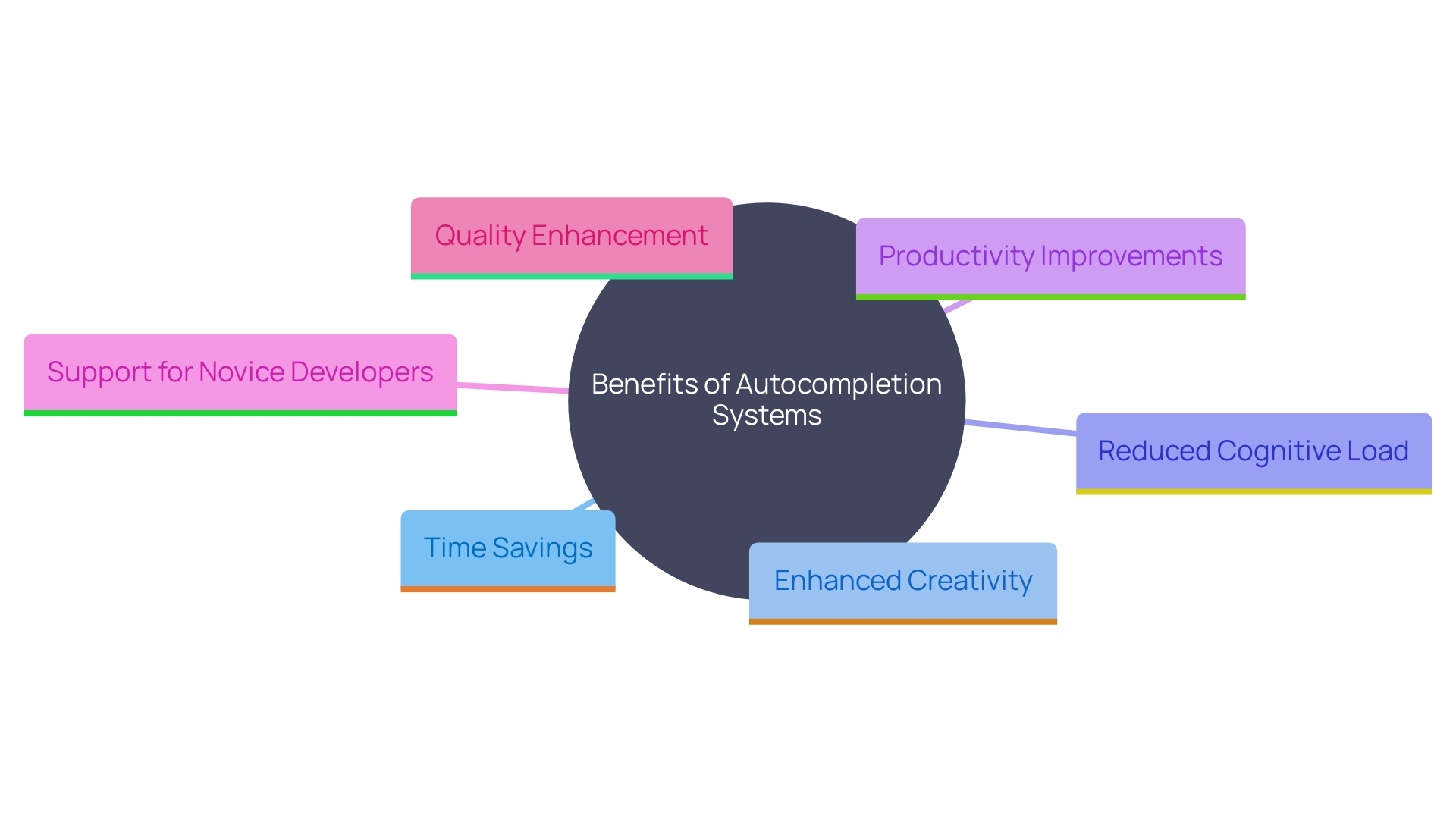
Challenges and Limitations
Despite the apparent advantages of autocompletion systems, several challenges and limitations persist. One significant concern is the danger of programmers becoming excessively reliant on AI-generated recommendations, possibly resulting in a deterioration of their programming abilities over time. Furthermore, the context sensitivity of these resources can occasionally be challenging, as the recommendations may not always match the creator's intent or the project's particular requirements.
For example, recent surveys emphasize varied opinions among software engineers concerning AI programming helpers. While these tools can significantly save time and enhance code quality, concerns about AI errors, privacy risks, and ethical issues like over-reliance remain prevalent. A survey carried out by CodeSignal, involving over 1,000 participants, revealed that while AI programming assistants are increasingly adopted, programmers still have reservations about their impact on productivity and autonomy.
Moreover, the shift towards using natural language as an interface in software engineering tasks and the automation of large-scale tasks through machine learning has shown initial evidence of feasibility. This trend is evident in the progress of AI-based assistance in companies like Google, where internal tooling has significantly transformed over the past five years, enhancing developer productivity and satisfaction.
Addressing these challenges requires a balanced approach. Programmers must remain actively involved in the programming process, utilizing autocompletion aids as helpful resources instead of substitutes for their abilities. By understanding and addressing these key issues, the incorporation of AI resources in software creation can become more effective and trusted, ultimately enhancing human coding abilities rather than replacing them.
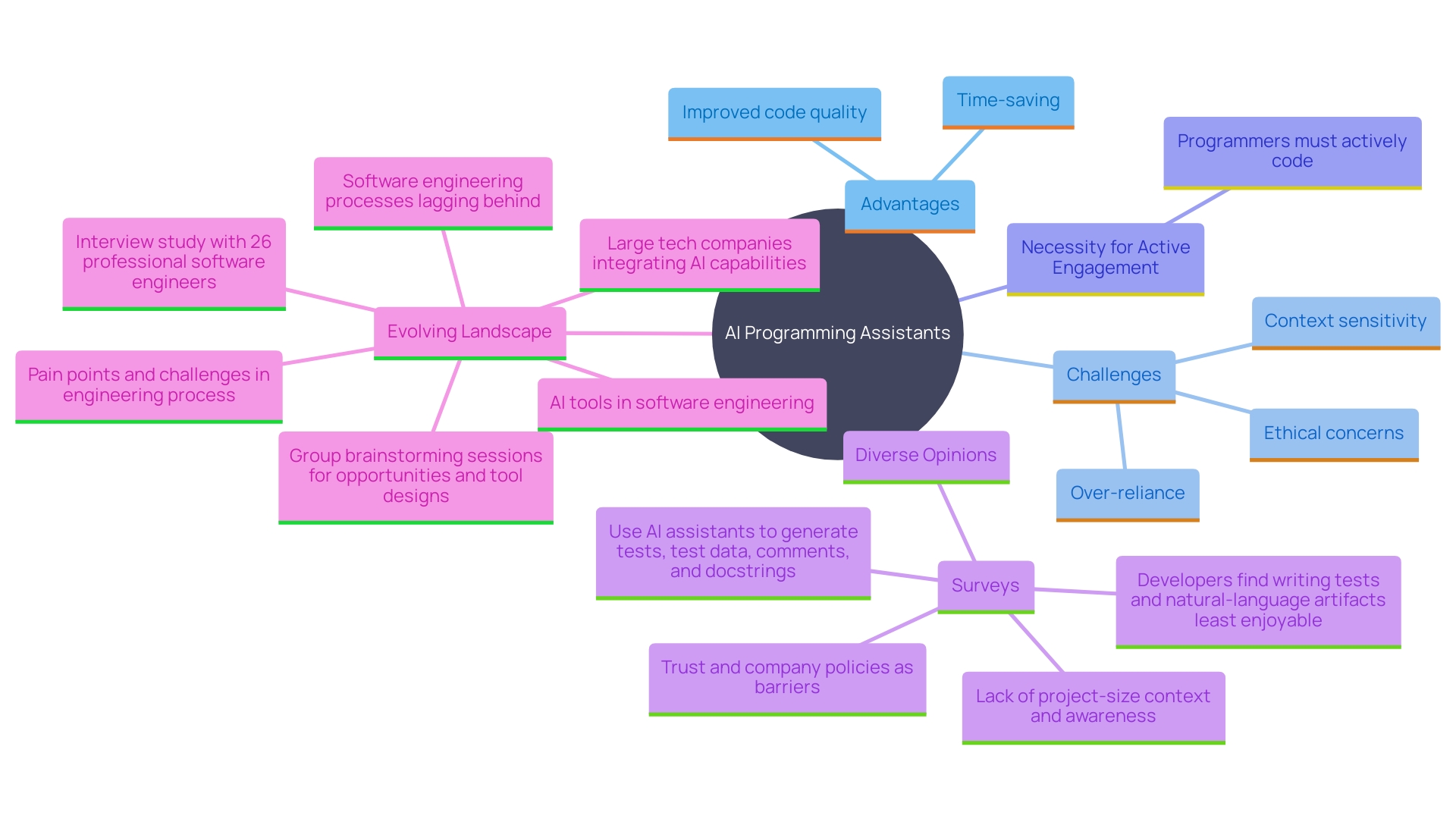
Future Research and Implications
As AI-powered tools become more integrated into standard programming practices, ongoing research is essential to understand their long-term implications. Research should concentrate on their effect on team dynamics, collaboration, and the overall software creation lifecycle. For instance, surveys and interviews with engineers have shown that AI-based coding assistants and AI-powered workflows can significantly enhance productivity and efficiency, but also require new skills and adaptations.
A randomized controlled trial conducted with hundreds of software development teams demonstrated that those utilizing AI resources, such as natural language code generation and intelligent code completion, completed tasks about 30% faster than those using conventional methods. This suggests significant efficiency gains and cost savings for companies across various industries.
However, the current research often focuses on specific AI technologies, overlooking the broader landscape of AI applications like data-driven decision-making or task automation. Expanding research to include a wider range of AI-powered tools will provide a more comprehensive understanding of their impact. Additionally, exploring future scenarios and the evolving role of engineers in an AI-driven landscape will be crucial for maximizing productivity while ensuring developers retain their coding skills and creativity. As AI technology continues to evolve, its role in shaping the future of software development will undoubtedly be significant.
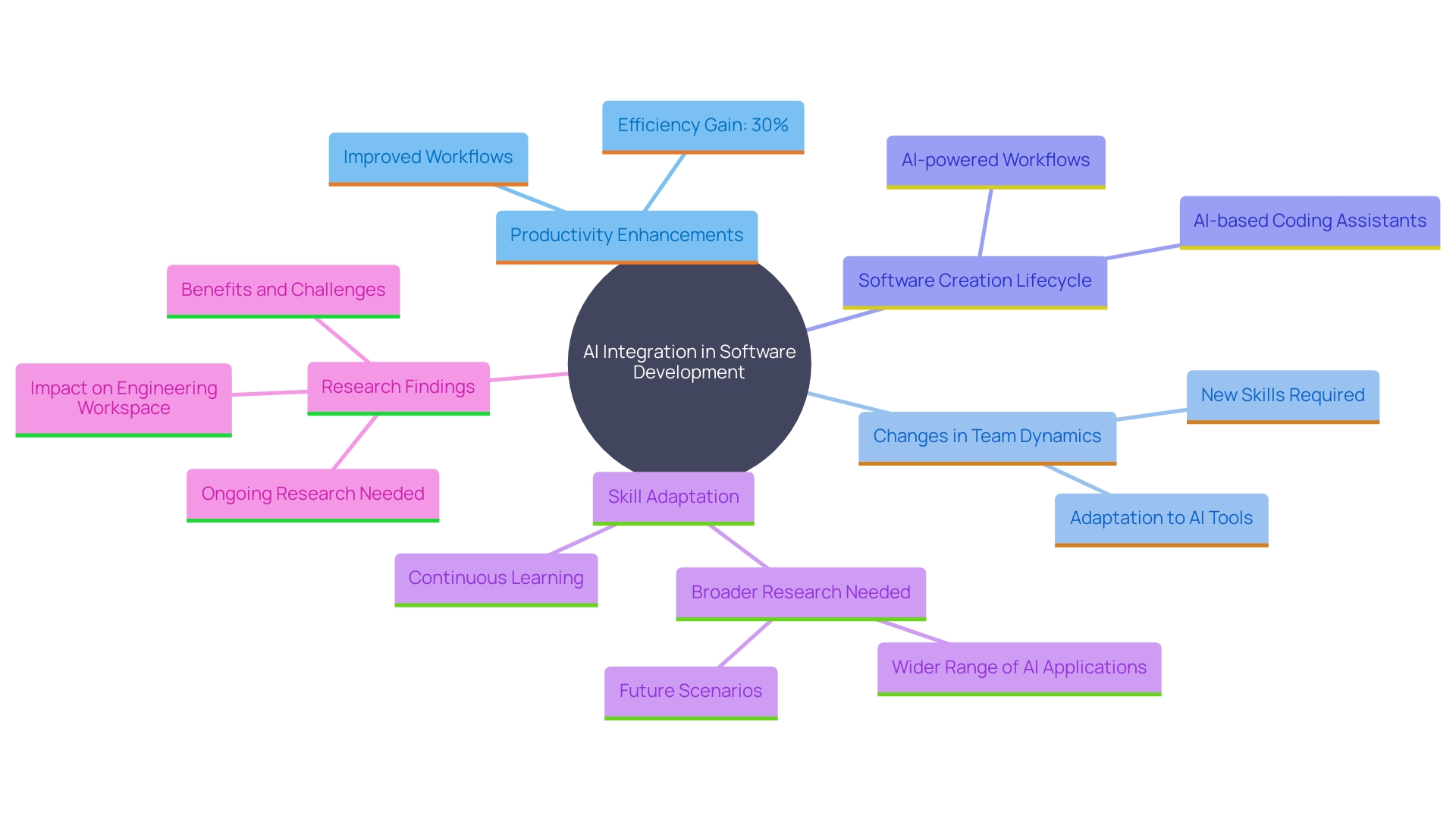
Conclusion
The analysis of GitHub Copilot's impact on developer productivity underscores its transformative potential in the software development landscape. By significantly accelerating coding processes—reportedly by up to 30%—and enhancing the quality of code, Copilot serves as an invaluable asset for developers at all levels. The tool not only streamlines repetitive tasks but also fosters a creative environment where developers can focus on complex problem-solving and innovation.
Moreover, the benefits of GitHub Copilot extend beyond mere speed. Developers have reported reduced cognitive load and increased engagement with higher-level tasks, leading to a more satisfying coding experience. Junior developers, in particular, benefit from the guidance provided by Copilot, which aids in their learning process and helps establish coding best practices.
The integration of AI into development workflows thus promotes a collaborative synergy between human expertise and artificial intelligence.
However, it is essential to acknowledge the challenges that accompany this technological advancement. Concerns around over-reliance on AI-generated suggestions and the potential decline in coding skills highlight the need for developers to maintain active engagement in their craft. Balancing the use of AI tools with traditional coding practices will be crucial in ensuring that the benefits of tools like GitHub Copilot are fully realized while mitigating associated risks.
In conclusion, the future of software development is poised for significant evolution as AI tools like GitHub Copilot become increasingly integrated into standard practices. Ongoing research and adaptation will be vital in navigating this landscape, ensuring that developers continue to thrive while harnessing the power of artificial intelligence to enhance productivity and creativity.
Frequently Asked Questions
What is GitHub Copilot?
GitHub Copilot is an AI-powered tool integrated into programming environments like PyCharm that helps developers by suggesting complete lines or sections of code as they type.
How successful has GitHub Copilot been among users?
A study by Accenture indicated that over 80% of participants successfully adopted GitHub Copilot, with a 96% success rate among initial users. Additionally, 67% of participants reported using it at least five days a week.
How does GitHub Copilot affect programming speed?
Development teams using GitHub Copilot have reported completing programming tasks up to 30% faster, especially in repetitive coding tasks, allowing them to focus on more complex problem-solving.
Who benefits the most from using GitHub Copilot?
While developers of all skill levels benefit, junior developers experience significant advantages as Copilot helps accelerate their coding process and improves their understanding of best practices and code quality.
What are the broader impacts of using AI tools like GitHub Copilot?
AI tools enhance productivity by allowing developers to focus on creative and complex tasks, reduce cognitive load, and minimize errors, resulting in better-quality software.
Are there any challenges associated with using GitHub Copilot?
Yes, there are concerns about over-reliance on AI-generated recommendations, which could lead to a deterioration of programming skills. Additionally, the context sensitivity of suggestions may not always align with a programmer's intent.
What do surveys say about the perception of AI programming assistants?
Surveys reveal mixed feelings among programmers regarding AI assistants. While many acknowledge the time savings and quality improvements, concerns about AI errors, privacy risks, and autonomy persist.
How should developers approach the use of AI tools?
Developers should utilize AI resources like GitHub Copilot as helpful aids rather than substitutes for their abilities, ensuring they remain actively involved in the programming process.
What future research is needed regarding AI in software development?
Ongoing research should focus on the long-term implications of AI tools on team dynamics, collaboration, and the broader software creation lifecycle, as well as the evolving role of engineers as AI technology progresses.
How can companies benefit from AI tools in their development processes?
Utilizing AI resources can lead to significant efficiency gains and cost savings, with teams completing tasks about 30% faster than those relying on conventional methods, which could enhance overall productivity across industries.




